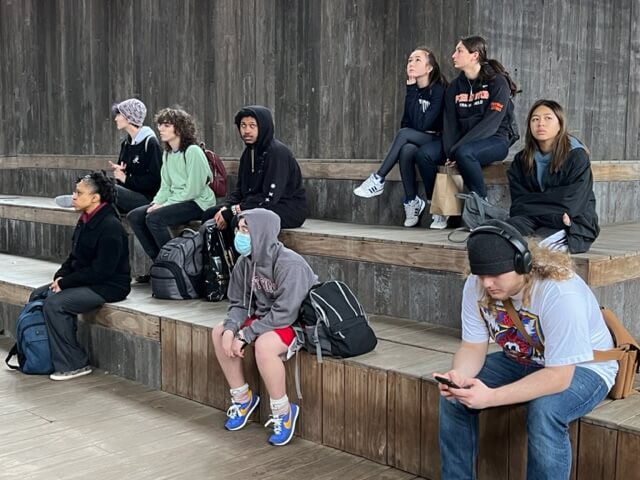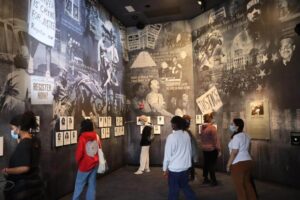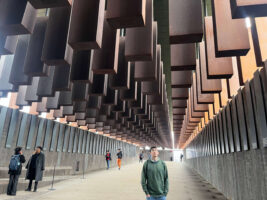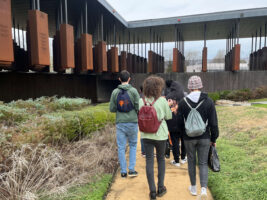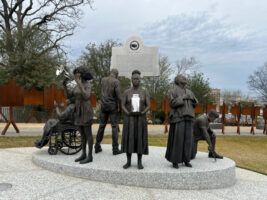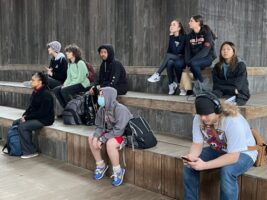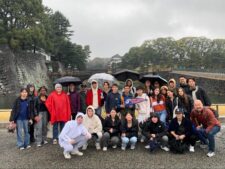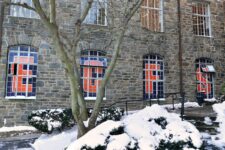At the Ethical Culture Fieldston School, creating an environment where our students actively and thoughtfully engage with the world around them is central to our mission. In February, 28 Fieldston Upper 11th and 12th Grade students who are enrolled in ethics and history elective classes, along with seven faculty members, embarked on a powerful trip that allowed them to accomplish that. They traveled to Montgomery, Alabama, a city rich in civil rights history, to spend three immersive days. The trip built on what students are learning in class, and according to Rachel Ehrlich, Fieldston Upper Ethics Department Chair, “The goal of this trip is to explore the powerful history of slavery, racial terror, and mass incarceration in our country.”
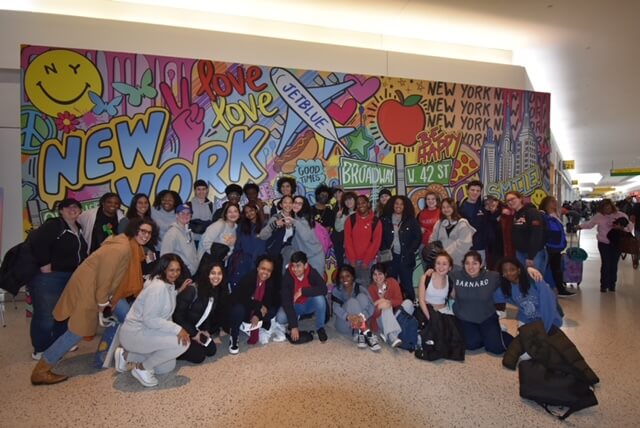
Alex B. ’23 shared, “Montgomery’s history survives in street names, statues, and murals on nondescript buildings. Slaves were auctioned in the city’s main square, just a few blocks from our hotel. They were trafficked up the river visible from my window. Conversely, other inconspicuous spots turned out to be the sites of incredible resistance.”
A key stop on the trip was the Equal Justice Initiative (EJI), founded by Bryan Stevenson, a widely acclaimed public interest lawyer and bestselling author of “Just Mercy,” which was a recent Fieldston Upper summer reading book. At the EJI, the group visited the Legacy Museum: From Enslavement to Mass Incarceration and the National Memorial for Peace and Justice, which is part of the organization’s effort to create new spaces for addressing the legacy of slavery, lynching, and racial segregation, and which informs many issues today.
“I had a very engaging experience on the Alabama trip, and after going, I believe that everyone should experience the Legacy Museum. Although there are some hard truths that people might have to face, the lessons and morals that people would learn as a result of going to Montgomery are tremendous. My favorite part of the trip was the day that I met with an EJI lawyer and heard her perspectives.” explained Kofi D. ’24.
This visit was such a unique opportunity to see the history of enslavement, incarceration, and the legacies of those working for social justice through the eyes of young adults.
Ehrlich shared, “The ability to draw discursive lines between our country’s legacy of slavery, lynching, and the current era of mass incarceration and police brutality is critical for student learning. Students also visited the Southern Poverty Law Center’s Civil Rights Memorial and spoke to criminal justice lawyers who are working to alleviate conditions for incarcerated youth in Alabama. On our last morning, we attended church at Dexter Avenue King Memorial Baptist Church where a young Dr. Martin Luther King supported the Women’s Political Council as they organized the Montgomery Bus Boycott, which ignited the civil rights movement of the 1950s and 1960s. We were honored and surprised to hear the sermon delivered by Senator Reverend Raphael Warnock, visiting from Georgia to celebrate Black Resistance in this historic church that continues to be a mighty presence in the current civil rights movement for liberation.”
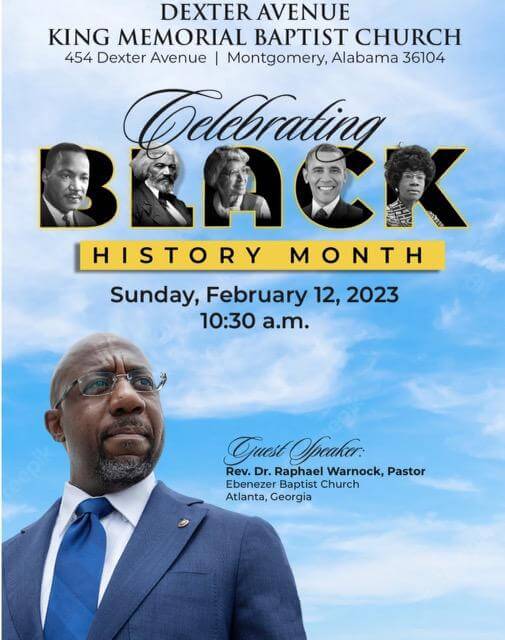
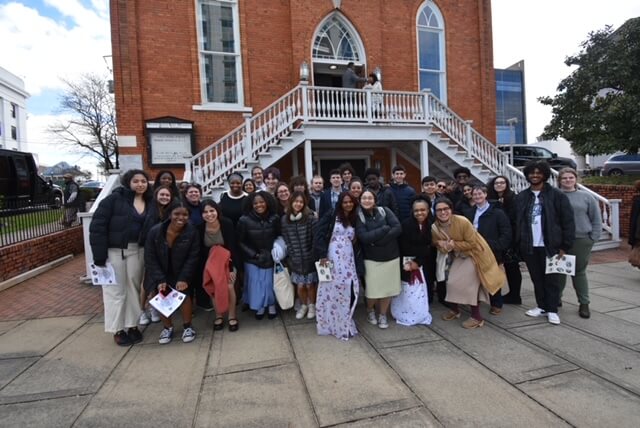
Atlas G. ’24 reflected, “My personal favorite moment was getting to hear Senator Reverend Raphael Warnock preach at the church where Dr. Martin Luther King once preached; it was my first time in a church and I thought the senator was absolutely fantastic.”
Chaperone Stacey Bobo, Principal, Fieldston Upper, concluded, “This visit was such a unique opportunity to see the history of enslavement, incarceration, and the legacies of those working for social justice through the eyes of young adults.”
